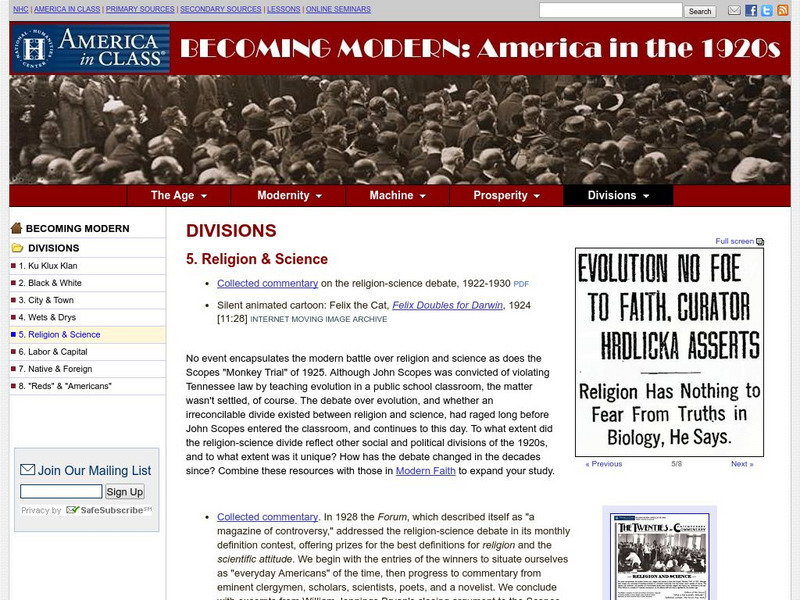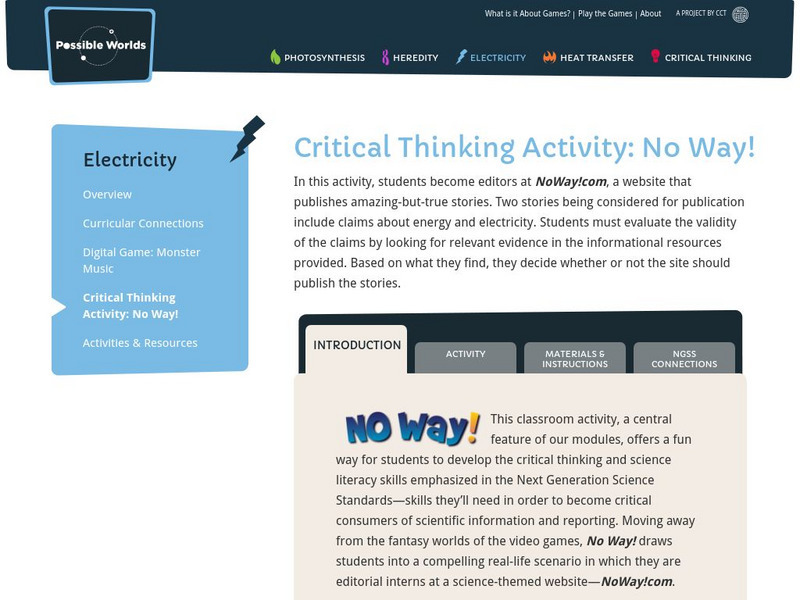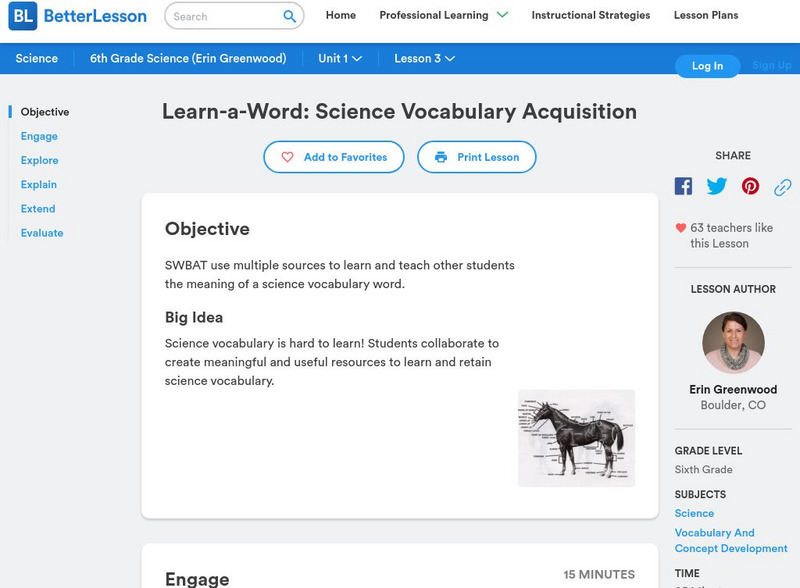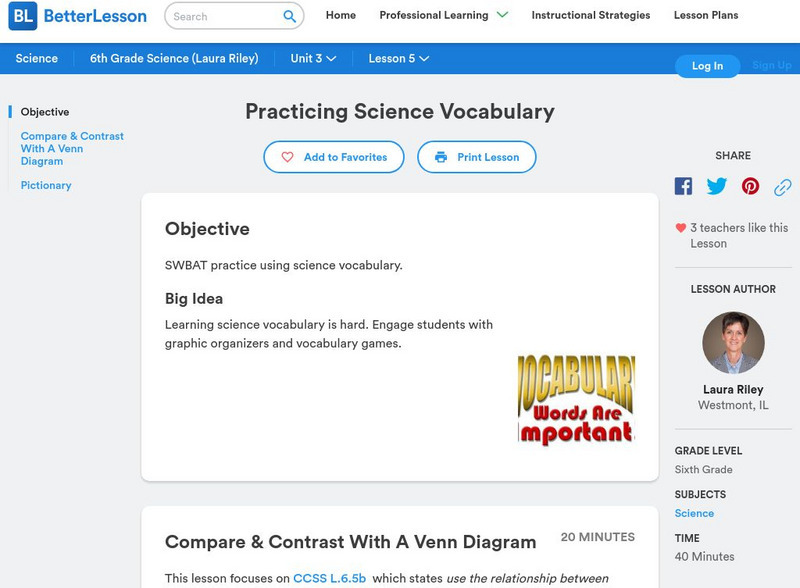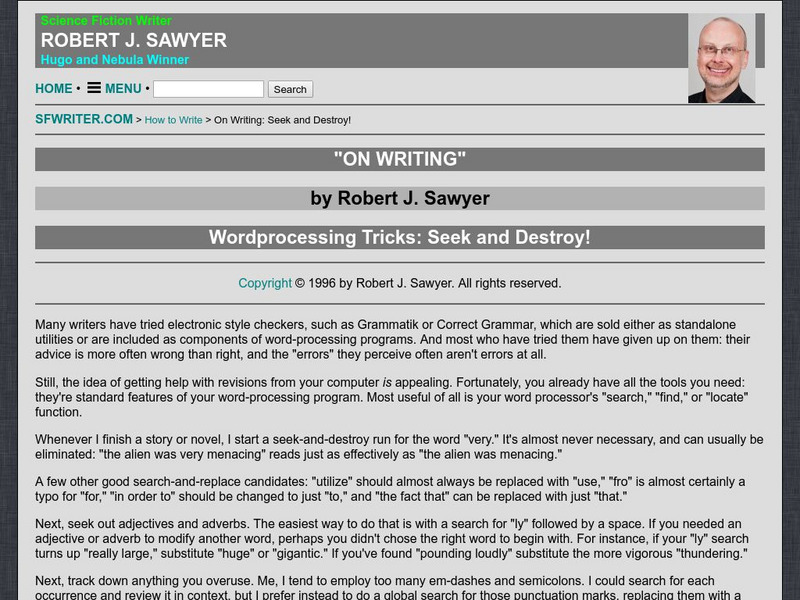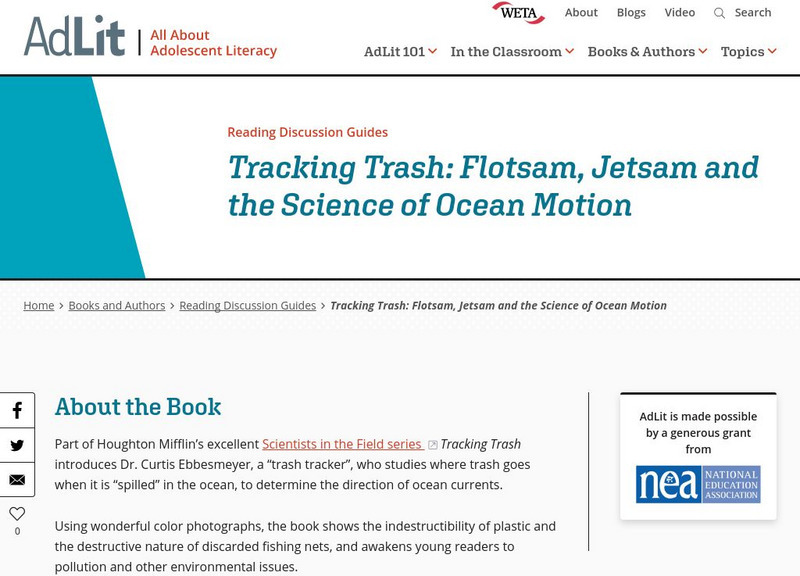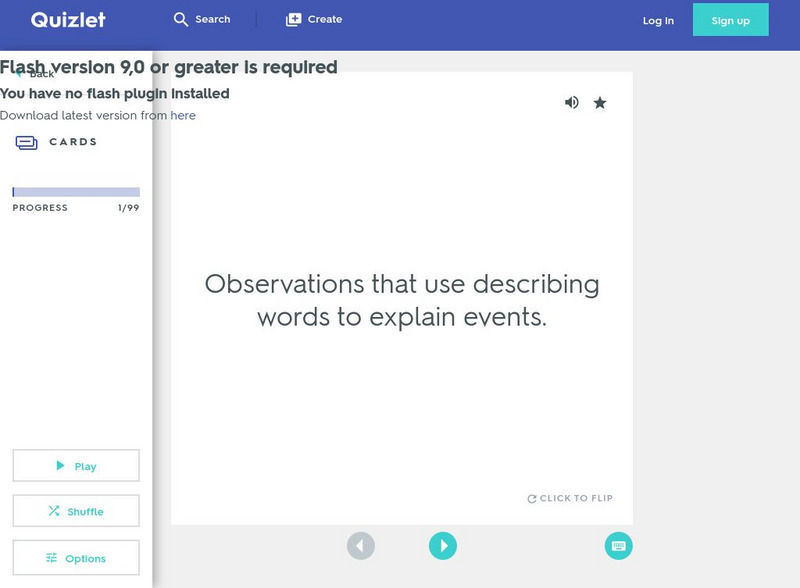Hi, what do you want to do?
New York State Education Department
TASC Transition Curriculum: Workshop 1
Work out your core, Common Core State Standards, through the first workshop in a series of 15 designed for educators. Inquiry-based activities designed for all content areas and grade levels explore the shifts to new standards,...
New York State Education Department
TASC Transition Curriculum: Workshop 13
The six instructional shifts in this workshop definitely move math and science teachers' understanding of instruction. The workshop, 13th out of a series of 15, asks participants to examine sample tests and to look at how the six...
EngageNY
TASC Transition Curriculum: Workshop 15
What do a cheetah, Audi commercial, and air have in common? They're all topics of an engaging inquiry-based, hands-on workshop for educators about background knowledge, reading strategies, the CER model, and argumentative writing. The...
EngageNY
TASC Transition Curriculum: Workshop 8
Lights, camera, action! Math educators consider how to improve their instruction by examining a model of the five-practice problem-solving model involving a movie theater. Participants examine cognitive demand in relation to problem...
New York State Education Department
TASC Transition Curriculum: Workshop 7
Designed specifically for math instructors, the seventh workshop of a 15-part series allows time to explore Webb's DOK, ponder open-ended questions, and create lessons to apply what is learned. Teachers craft high-quality math problems...
Other
Form Swift: Common Core Lesson Plans
Three, customizable Common Core lesson plan templates educators can create and fill out for math, science, and language arts.
Buck Institute
Pbl Works: Pbl, Common Core and Next Gen Standards
[Free Registration/Login Required] This two-page article summarizes the alignment of PBL with Common Core standards for ELA and math, plus the Next Generation Science Standards. It is an excerpt from the BIE book, PBL for 21st Century...
Student Achievement Partners
Achieve the Core: Introduction to Literacy Shifts in Content Areas
This 1-2 hour module provides an introduction to the key shifts required by the CCSS for Literacy in the content areas: history / social studies, science, and technical subjects.
National Humanities Center
National Humanities Center: America in Class: America in the 1920s: Religion & Science
The National Humanities Center presents collections of primary resources compatible with the Common Core State Standards - historical documents, literary texts, and works of art - thematically organized with notes and discussion...
National Science Teachers Association
Nsta: Science & Engineering Practices: Obtaining, Evaluating, Communication
This site from NSTA includes a progression of the Science and Engineering Practice for obtaining, evaluating, and communicating information. In addition, thereare performance expectations that make use science and engineering practices.
Other
Ctr for Assessment: Hess' Cognitive Rigor Matrix & Examples Math/science [Pdf]
Use this convenient table to compare Webb's Depth of Knowledge levels with Bloom's Cognitive Process Dimensions for Math and Science.
Association for Supervision and Curriculum Development (ASCD)
Educational Leadership: Art and Science of Teaching /Cognitive Verbs and Cc
The Common Core State Standards (CCSS) present a new mandate and challenge for K-12 educators-teaching and reinforcing cognitive verbs. These verbs, referred to as academic vocabulary, signal the type of mental operations that students...
Education Development Center
Center for Children and Technology: No Way: Electricity
Moving away from the fantasy worlds of video games, No Way draws students into a compelling real-life scenario in which they are editorial interns at a science-themed website. This classroom activity on electricity offers a fun way for...
Texas Education Agency
Texas Gateway: Formal Writing Across the Content Areas
This resource explores instructional practices for incorporating formal writing into English language arts, mathematics, science, and social studies instruction. CCSS.ELA-Literacy.WHST.6-8.1.d
Better Lesson
Better Lesson: Learn a Word: Science Vocabulary Acquisition
In this instructional activity, students use multiple sources to learn the meanings of science words, collaborating to create useful resources for learning and retaining science vocabulary.
Better Lesson
Better Lesson: Practicing Science Vocabulary
In this lesson, 6th graders play a compare and contrast game and Pictionary to practice their science vocabulary.
Other
Science Fiction Writer: Robert J. Sawyer: "On Writing": Word Processing Tricks
Science fiction writer Robert J. Sawyer shares his word processing tricks and tools for proofreading and editing a manuscript. CCSS.ELA-Literacy.WHST.6-8.6 Use technology to produce and publish writing
PBS
Nova Online: How Many Pearls? A Weight & Volume Game
This interactive game has students apply skills in estimation, measurement, and basic addition using pearls. Students are asked to estimate the number of pearls in a treasure chest by making predictions and using number sense. The skills...
Thinkport Education
Thinkport: Citing Textual Evidence: Changing Oceans
Learn how to cite evidence to support ideas presented in a science article about oceans.
Thinkport Education
Thinkport: Translating Qualitative & Quantitative Details: Climate Change
In this science-themed literacy lesson, students read for and differentiate between qualitative and quantitative information.
Thinkport Education
Thinkport: Using Multiple Sources: Sea Turtle Populations
In this science-themed literacy lesson, students learn how to identify the central idea and key details in an article about sea turtles.
Thinkport Education
Thinkport: Translating Qualitative & Quantitative Details a New Galaxy
In this science-themed literacy lesson, students learn how to read for and differentiate between qualitative and quantitative information.
AdLit
Ad lit.org: Guide: Tracking Trash: Flotsam, Jetsam and the Science of Ocean Motion
Part of Houghton Mifflin's excellent Scientists in the Field series Tracking Trash introduces Dr. Curtis Ebbesmeyer, a "trash tracker", who studies where trash goes when it is "spilled" in the ocean, to determine the direction of ocean...
Quizlet
Quizlet: 7th Grade: Science Vocabulary: Flashcards
This set of interactive flashcards focuses on science vocabulary including 99 science terms and their definitions.













